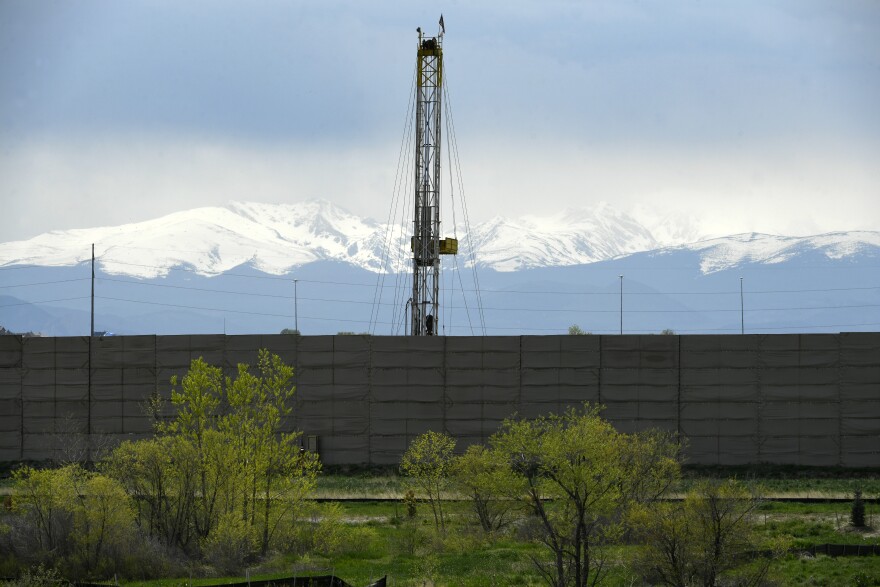Two of the biggest mergers in the oil and gas industry this year took place in Colorado, helping make the second quarter of 2021 one of the hottest periods for deals in the past couple of years.
Bonanza Creek's acquisition of Extraction Oil and Gas, both Colorado companies, was one of seven deals nationwide valued at more than $1 billion, according to a new report by Enverus. Civitas Resources, which formed after the merger of Bonanza Creek and Extraction, then acquired Denver-based Crestone Peak Resources for $1.3 billion.
The year started out cold on the mergers and acquisition front, but heated up, setting a "scorching pace" of more than $33 billion in more than 40 deals in the second quarter, said Andrew Dittmar, a senior analyst at Enverus. As they respond to pressure from investors to operate more efficiently, oil and gas producers have prioritized consolidation, Dittmar said in a statement.
The second quarter resumed the brisk activity of 2020, Dittmar said. More than $85 billion in mergers and acquisitions among exploration and production companies was announced during the prior 12 months.
Another development as business and travel have rebounded from the lows of the pandemic has been rising oil prices. Prices shot up past $70 a barrel, although they slipped a bit last week on news of a possible agreement among OPEC members to increase production.
Whatever happens with the price, analysts expect U.S. companies to keep meeting the demands of investors and shareholders to hold the line on spending and increase free cash flow.
While some of the recent mergers in other parts of the country tended to focus on adding to companies' inventory, the Colorado deals were about savings and efficiency, Dittmar said in an interview. The Bonanza Creek-Extraction and Civitas-Crestone deals consolidate operations in the Denver-Julesburg Basin along the northern Front Range.
The mergers are expected to save $70 million annually.
"In some ways, the D-J (Basin) is almost ahead of the curve in terms of consolidating," Dittmar said.
The Denver-Julesburg is less fragmented than other oil and gas basins, Dittmar said. That might be partly out of necessity, he added, because companies are operating in fairly populated areas and are dealing with new state regulations, which can limit where companies drill. He said having a larger block of land would allow companies to better position themselves.
Dittmar expects to see more consolidation along the Front Range. "There are quite a few smaller private equity guys still left in the D-J Basin that I think would be sensible for Civitas to roll up."
A recent report by the Payne Institute for Public Policy at the Colorado School of Mines foresees the oil and gas industry continuing to concentrate on being more efficient and returning more money to shareholders. The report says more companies are committed to using profits for dividends for shareholders and addressing investors' concerns about such environmental and social issues as cutting carbon emissions.
Before the pandemic broke out and demand for oil and gas plunged, companies were under pressure from investors to cut spending. Many companies piled up debt when advances in technology unlocked more land for development and investments and loans flowed in.
"They’re listening to all those parties that are saying we do not want you to act the way you used to act. We do not want you to spend all the money that’s coming in the door or all of it in pursuit of growth in the same way that you used to," said Brad Handler, a fellow at the Payne Institute and author of a report released in June.
On the ground, that likely means higher productivity as the industry recovers from the pandemic-induced recession, but with fewer workers, according to the report.
At the end of March, Handler said federal data shows the industry nationwide directly employed about 390,000, up from a low of 370,000 at the end of September 2020. At the start of 2019, about 500,000 people were working in the industry nationwide.
In Colorado, about 19,600 people were working in mining and logging in May. Most of those were in oil and gas. At the start of 2020, the total employed statewide was 26,500, according to the U.S. Bureau of Labor Statistics.
The industry and Wall Street are watching to see whether OPEC+, which includes non-OPEC members, will agree to boost production. The group, including Russia, cut production last year when a glut of oil followed by dropping demand because of COVID-19 led to a collapse in prices.
"They have done an amazing job at micromanaging the market and restoring oil prices post-COVID," Bill Farren-Price, director at Enverus, said of the OPEC.
But differences among OPEC members on boosting oil production are worrisome and could make the industry's recovery more difficult, Farren-Price said in a statement.
- - -
This story was written in partnership with the Denver Post, through a collaboration powered by COLab, the Colorado News Collaborative — a nonprofit formed to strengthen local public-service journalism in Colorado. KSUT joined this historic collaboration with more than 40 news organizations to share in-depth local reporting to better serve Coloradans.
Mark Duggan provided online production of this story for KSUT.






